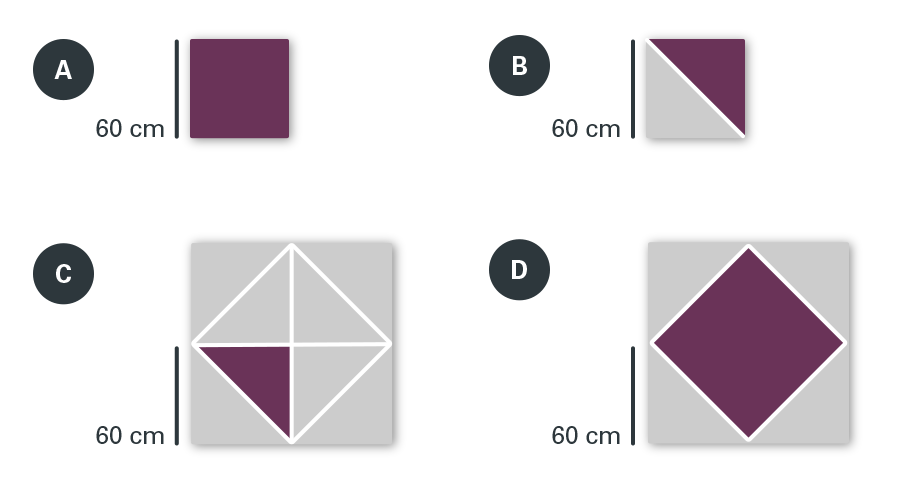PRE-PSYCHOLOGY
2.2
Philosophical Roots of Psychology
Rationalism and Empiricism
Learn about two schools of thoughts that have shaped philosophy and psychology for centuries: Rationalism and Empiricism.
In Plato’s dialogue, Meno, Socrates is portrayed as arguing for the existence of innate knowledge. Meno, a well-off young man accompanied by slaves asks Socrates: “Can you tell me, Socrates, whether virtue is acquired by teaching or by practice; or if neither by teaching nor practice, then whether it comes to man by nature, or in what other way?”
Socrates tries to convince Meno of the existence of innate knowledge by demonstrating that one of Meno’s slaves, uneducated and, thus, apparently unknowledgeable, possesses some understanding of basic geometric principles.
Socrates starts by drawing a square and asking the slave (see Figure 1A): How long must a square’s side be, to double the area of a 2 feet-sided square (ca. 60 cm)? The slave initially guesses (incorrectly) that the original side must be doubled in length. Socrates then draws a second square depicting the diagonal of the square (Figure 1B). The diagonal cuts the square in half, with each triangular half yielding half of the square’s area. As a consequence, a square composed of four such triangular areas has double that of the original area (Figure 1C). Socrates finally gets the slave to agree that this is twice the size of the original square, leading Socrates to argue that the slave has “spontaneously recovered” knowledge (Figure 1D). Plato’s dialogue is a classic example in philosophy arguing for the idea that some knowledge is innate and can be accessed through proper inquiry.
Do you think this is the type of argument more closely associated with the rationalist or empiricist schools of thought?
Questions on the texts
Please read the following piece (core reading) discussing the main ideas and controversies associated with the two philosophical schools: https://plato.stanford.edu/entries/rationalism-empiricism/
- Identifying the main ideas of the rationalist and empiricist schools can be helpful to place debates about the nature of knowledge that have been at the core of philosophy and psychology. Given your knowledge of psychology, can you already identify how some of these ideas may have shaped psychologists’ thinking about the nature of knowledge and learning?
- Given your knowledge of psychology, can you already identify how some of these ideas may have shaped psychologists’ thinking about the nature of knowledge and learning?

Socrates draws geometric figures in the sand to demonstrate that Meno’s slave has some basic understanding of geometric principles, such as the ability to double the area of a square (see text above for a description).
References
Markie, P. (2017) Rationalism vs. Empiricism. In E. N. Zalta (Ed.), The Stanford encyclopedia of philosophy (Fall ed.). Metaphysics Research Lab, Stanford University. https://plato.stanford.edu/archives/fall2017/entries/rationalism-empiricism/
Please note that certain links to journal articles are only available within the eduroam network if they concern publications for which the university has a campus license. If you are a member of the University of Basel and want to access university resources from home, you will need to install a VPN client.
Lizenz
University of Basel
